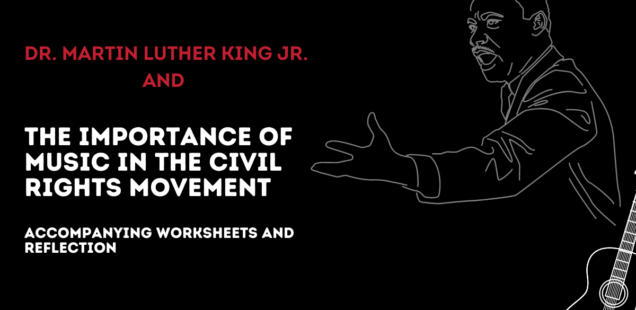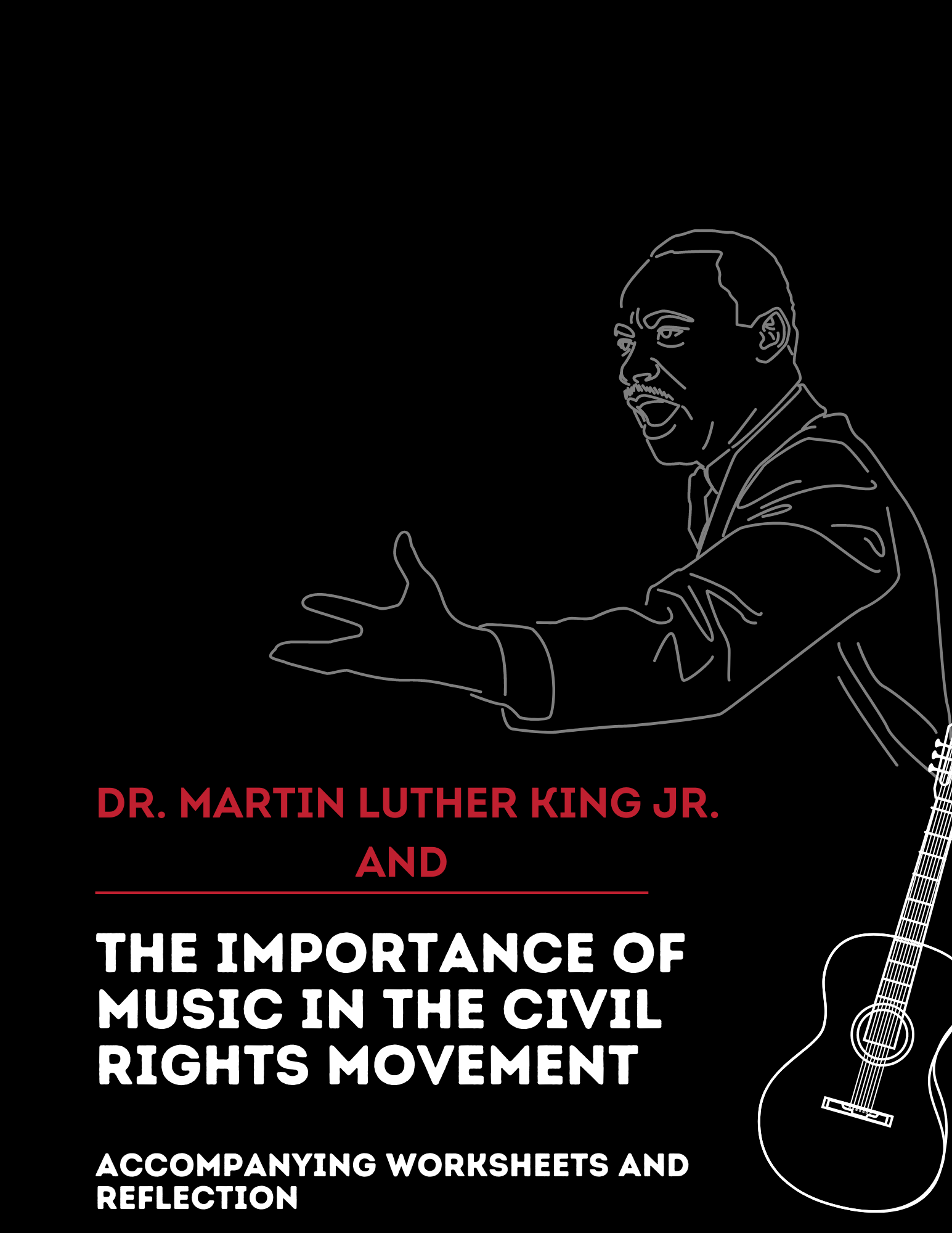
Martin Luther King Jr. and Music of the Civil Rights Movement
We recently celebrated Dr. Martin Luther King Jr's birthday.
In delving into his legacy and the history of the Civil Rights Movement, the impact and role of music is undeniable. Music was integral to the Civil Rights Movement and Dr. King had some profound words to say about music, particularly, jazz.
I created a lesson for my students titled "Dr. Martin Luther King Jr. and the Importance of Music in the Civil Rights Movement" in an effort to simultaneously celebrate Dr. King's life and highlight the music of the Civil Rights Movement.
I want to share that lesson with you in this blog and provide some resources for you and your students, if you should wish to dig deeper on this topic.
Power Of Music
Students may not be aware of the power of music to create social change. I delivered this lesson to my 7th and 8th grade students and many of them were not aware of the powerful role music has played throughout history. In this lesson, students learned that music is a powerful source to uplift, strengthen, encourage, and spread messages of hope. That was exactly the role of music in the Civil Rights Movement. The music of the Civil Rights Movement pulled inspiration from many sources - African American spirituals, gospel hymns, and folk songs.
The music was a direct outpouring of the culture and the community for which freedom was being fought. These songs would have been taken directly from the community and their culture. As Bernice Johnson Reagan cites in her article "Music in the Civil Rights Movement," she says, "the songs that were sung the most were adapted from the repertoire that people already knew." The songs of the Civil Rights Movement were ones folks would have learned as young children and were a part of their daily life.
One example Johnson gives is the popular Sunday school spiritual, "This Little Light Of Mine." These pieces would have been sung at a mass meeting or gathering, at a march, or to pass the time. Regan states that they would have been sung in a congregational style, much like music would have been sung on Sunday in church. A song leader would begin the song and everyone would begin singing in one voice.
Connecting It To Dr. King
After giving my students some background on the types of songs that were sung, how they were sung, and the ways music was so important - I begin to tie the music to Dr. King. In 1964, Dr. King gave a speech at the Berlin Jazz Festival. In it, he describes the role jazz played in the movement.
To quote Dr. King, he states, "Jazz speaks for life. The blues tell the story of life’s difficulties, and if you think for a moment, you will realize that they take the hardest realities of life and put them into music, only to come out with some new hope or sense of triumph. This is triumphant music.” As a part of the lesson I have students reflect on this quote from Dr. King. I asked them:
- What do Dr. King's words mean to you?
- Do you agree with Dr. King?"
Secondly, I have students reflect on another aspect of Dr. King's speech. He speaks specifically to the technical aspects of music and how they encouraged people in the fight for freedom. Dr. King said, "much of the power of our Freedom Movement in the United States has come from this music. It has strengthened us with its sweet rhythms when courage began to fail. It has calmed us with its rich harmonies when spirits were down. And now, Jazz is exported to the world." I asked the students:
- Have you ever been strengthened or encouraged by playing music or listening to a song?
- What is it about music that has the ability to encourage people during hard times?
After reading a few sections of Dr. King's speech, reflecting, and having the students connect the speech to their personal experiences - I play them two examples of music. The first is John Coltrane's famous heart wrenching ballad, "Alabama," written in light of the Sixteenth Street Baptist Church bombing that killed 4 young girls. You can listen to it here. The second is Grant Green's funky and jubilant jazz march entitled, "Selma's March." Check it out here.
Conclusion
Music had the power to express the hardships of Black Americans during the Civil Rights Movement. Whether it was thru popular music, jazz, or congregational singing – music tapped into the raw emotions of the people.
As Dr. King expressed, music was a source of strength and a calming presence in the face of the struggle for freedom and equal treatment.
The following point of reflection I asked my students in this lesson was in "what ways can you use your music to make a difference in the lives of others?"
May we all strive to make a difference in the lives of others with our music making (and teaching).
Dr. Martin Luther King Jr. and the Importance of Music in the Civil Rights Movement
Check out the lesson by clicking below.

References
1. Reagan, Bernice Johnson. "Music in the Civil Rights Movement." PBS, https://www.pbs.org/wgbh/americanexperience/features/eyesontheprize-music-civil-rights-movement/. Accessed Jan. 14, 2022.
2. History.com Editors. January 11, 2022. https://www.history.com/topics/black-history/martin-luther-king-jr. Accessed Jan. 15, 2022.
3. "Alabama by John Coltrane." The Music Aficionado. 14, April 2016. https://musicaficionado.blog/2016/04/14/alabama-by-john-coltrane/
4. Dr. Martin Luther King Jr. The King Center. https://thekingcenter.org/about-tkc/martin-luther-king-jr/
5. "Music in the Civil Rights". Library of Congress. https://www.loc.gov/collections/civil-rights-history-project/articles-and-essays/music-in-the-civil-rights-movement/. Accessed Feb. 18, 2022.